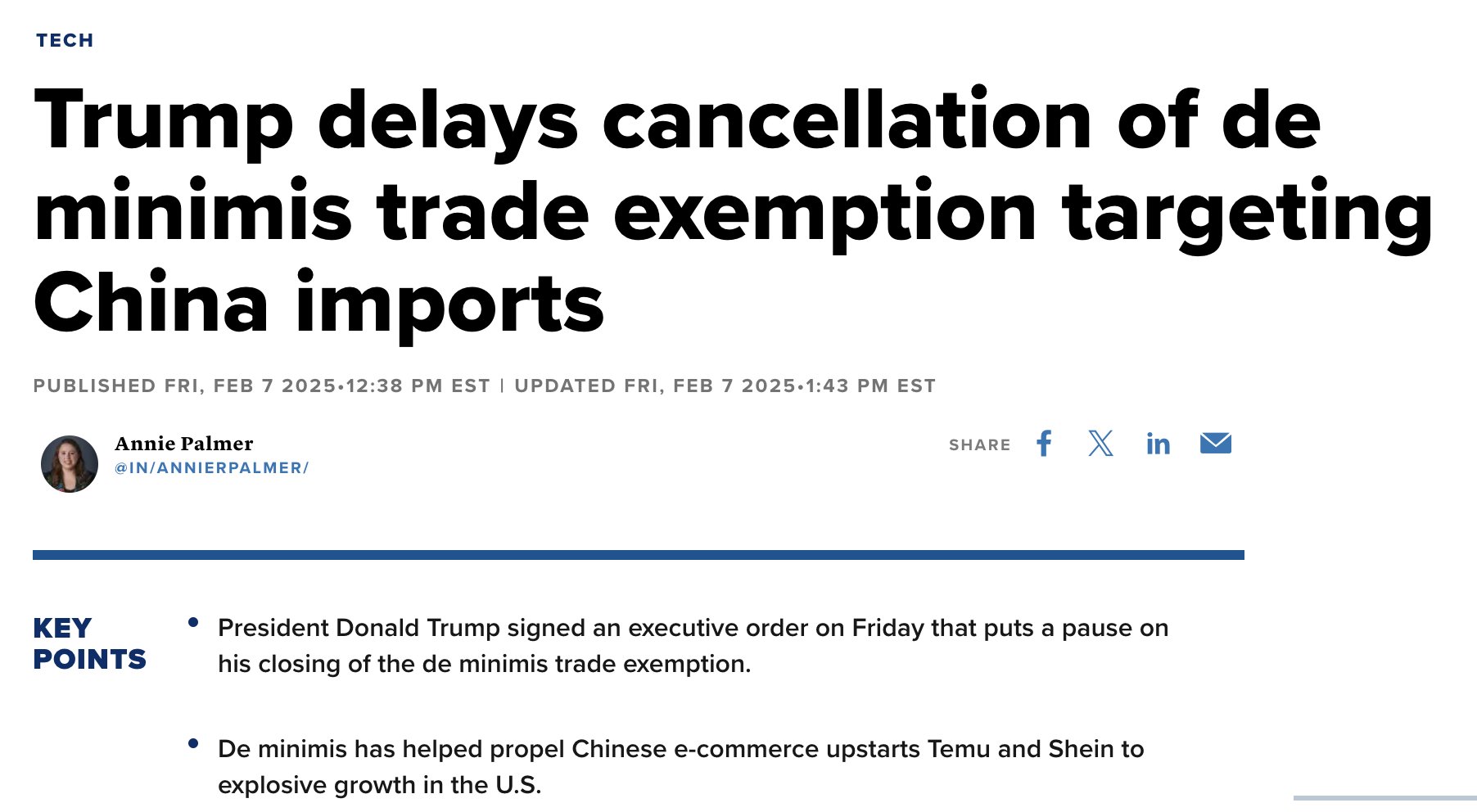President Donald Trump signed an executive order on Friday that puts a pause on his closing of the de minimis trade exemption, a provision commonly used by Chinese e-commerce companies Temu and Shein.
Latest news
Shopify Advocates for Open Trade Amid Trump’s Delay on Import Exemption
In a significant development in U.S. trade policy, former President Donald Trump has decided to delay the termination of the de minimis trade exemption, which predominantly affects imports from China. This move, announced unexpectedly, postpones measures that were set to impose stricter import regulations on low-value shipments entering the U.S. from China.

The de minimis rule, which allows goods valued at $800 or less to enter the U.S. tax-free, has been under review, with considerations to lower the threshold in a bid to tighten trade controls on Chinese imports. However, this postponement suggests a strategic pause as negotiations and broader trade discussions continue to evolve.

On November 1, 2024, during the Double 11 Shopping Festival, employees of an e-commerce company in Lianyungang City, Jiangsu Province, China, were busy packaging and sorting express parcels.
This delay is critical as it impacts numerous U.S.-based retailers and consumers who benefit from the lower costs associated with the current de minimis threshold. The decision may also reflect a more calculated approach to U.S.-China trade relations, signaling potential shifts in strategy under the ongoing economic dialogue between the two nations.
ALSO READ
The End of ‘De Minimis’: How the US Tax Policy Shift is Transforming Cross-Border E-Commerce
Stakeholders in trade and commerce are closely monitoring the situation, as any changes to this policy could have significant implications for international trade dynamics and domestic economic activities.
